
Lisa Grossman is the astronomy writer for Science News. Previously she was a news editor at New Scientist, where she ran the physical sciences section of the magazine for three years. Before that, she spent three years at New Scientist as a reporter, covering space, physics and astronomy. She has a degree in astronomy from Cornell University and a graduate certificate in science writing from UC Santa Cruz. Lisa was a finalist for the AGU David Perlman Award for Excellence in Science Journalism, and received the Institute of Physics/Science and Technology Facilities Council physics writing award and the AAS Solar Physics Division Popular Writing Award. She interned at Science News in 2009-2010.

Trustworthy journalism comes at a price.
Scientists and journalists share a core belief in questioning, observing and verifying to reach the truth. Science News reports on crucial research and discovery across science disciplines. We need your financial support to make it happen – every contribution makes a difference.
All Stories by Lisa Grossman
-
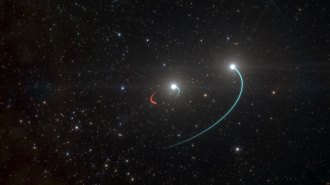 Space
SpaceThe closest black hole to Earth may have been spotted 1,000 light-years away
What appears to be the closest black hole to the solar system shares orbits with two massive stars, a new study finds.
-
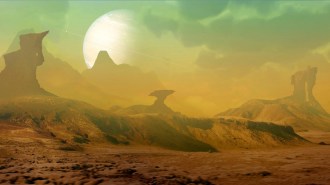 Planetary Science
Planetary SciencePlanets with hydrogen-rich atmospheres could harbor life
Lab experiments show yeast and E. coli survive and reproduce in hydrogen gas, suggesting new environments to seek alien life.
-
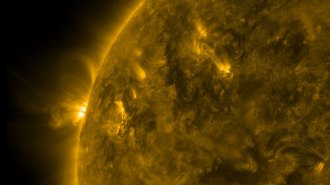 Astronomy
AstronomyThe sun is less magnetically active than similar stars, and we don’t know why
Why our star seems so different from its stellar kin is a mystery.
-
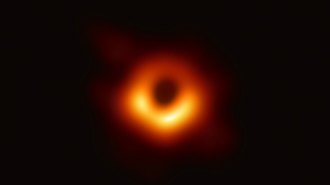 Physics
PhysicsA year after the first black hole image, the EHT has been stymied by the coronavirus
With this year’s observing run canceled due to the coronavirus, the Event Horizon Telescope team is analyzing data from 2017 and 2018.
-
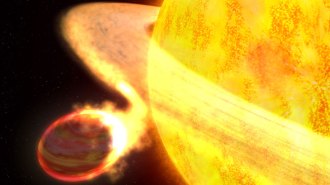 Space
SpaceRed giant stars that eat planets might shine less brightly
Some stars may shine less brightly after ingesting a planet. That finding, if confirmed, could have implications for calculating cosmic distances.
-
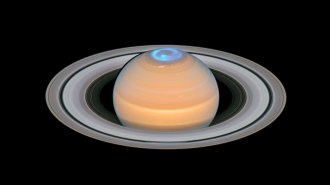 Space
SpaceSaturn’s auroras may explain the planet’s weirdly hot upper atmosphere
Data from NASA’s Cassini spacecraft could help solve Saturn’s mysterious “energy crisis.”
-
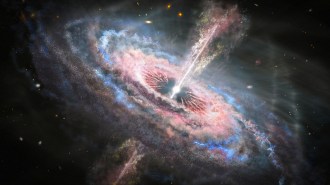 Space
SpaceQuasar winds with record energy levels were seen fleeing a distant galaxy
The Hubble Space Telescope has seen the most energetic quasar winds yet, showing these active black holes can blow star-forming gas out of galaxies.
-
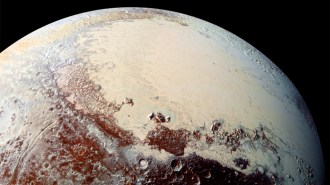 Planetary Science
Planetary ScienceIf Pluto has a subsurface ocean, it may be old and deep
New analyses of images from NASA’s New Horizons spacecraft suggest that Pluto may have had a sea beneath its icy shell for roughly 4.5 billion years.
-
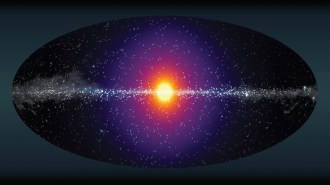 Space
SpaceA controversial X-ray glow didn’t show up in the Milky Way’s dark matter halo
A new look at old data suggests that an odd X-ray glow that emanates from some galaxies cannot come from decaying dark matter.
-
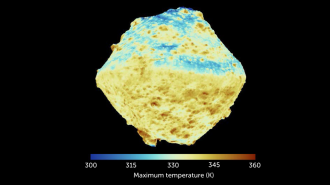 Planetary Science
Planetary ScienceThe asteroid Ryugu has a texture like freeze-dried coffee
Only about half of the asteroid Ryugu is rock; the rest is airy holes, a finding that could help reveal details of how the planets formed.
-
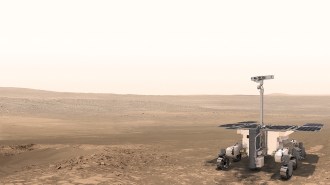 Planetary Science
Planetary ScienceCoronavirus and technical issues delay a Mars mission’s launch
The joint European-Russian ExoMars rover’s launch was postponed from July to 2022 so technicians could resolve issues with the landing equipment.
-
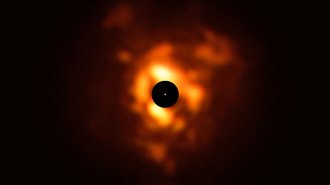 Astronomy
AstronomyThe star Betelgeuse might just be dusty, not about to explode
A new study suggests that dust recently expelled by Betelgeuse is why the star dimmed suddenly in late 2019 before brightening again.